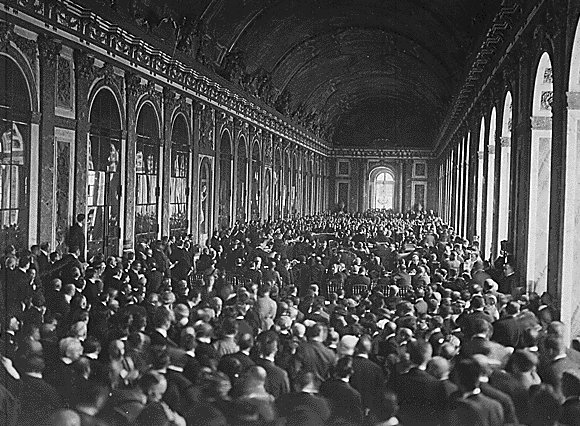It’s difficult to believe that the average person in China will ever know the same quality of life that Americans enjoy today, even if their economy blows past ours (which doesn’t seem to be a fait accompli). Because of China’s population size, even a super economy probably wouldn’t be able to put three SUVs in every garage. But that’s not to say that a large population foretells poverty, nor do technologies that displace workers. In the long run, a critical mass of people and technology seem to effect a greater prosperity. From “The Population Boon,” Philip E. Auerswald’s anti-Malthusian think piece in the American Interest:
“Almost exactly four years after V-J Day, on August 13, 1949, an MIT professor named Norbert Wiener wrote a letter to Walter Reuther, president of the United Auto Workers (UAW), containing a darkly prophetic message. Within a decade or two, Wiener warned, the advent of automatic automobile assembly lines would result in ‘disastrous’ unemployment. The power of computers to control machines made such an outcome all but inevitable. As a creator of this new technology, Wiener wanted to give Reuther advance notice so that the UAW could help its members prepare for and adapt to the massive displacement of labor looming on the horizon.
Now, if anyone in 1949 grasped the disruptive potential of computing machines, it was Norbert Wiener. A prodigy who earned his Ph.D. from Harvard in mathematical philosophy at age 18, he had contributed to the development of the first modern computer, created the first automated machine and laid the groundwork for a new interdisciplinary science of information and communication that he termed ‘cybernetics.’ His work anticipated and inspired Marshall McLuhan’s heralded studies of mass media, provided the initial impetus for the explorations by James Watson and Francis Crick that led to the discovery of the double helix, and spurred science-fiction writer William Gibson to coin the term ‘cyberspace’ to describe a type of virtual world that Wiener himself had envisioned two decades before the creation of the first web page.
Reuther took Wiener’s letter seriously, responding promptly by telegram: ‘Deeply interested in your letter. Would like to discuss it with you at earliest opportunity following conclusion of our current negotiations with Ford Motor Company. Will you be able to come to Detroit?’ When the two met in March 1950, they pledged to work together to create a labor-science council to anticipate and prepare for major technological changes affecting workers.
At about the same time Reuther and Weiner were meeting, a brain trust was gathering in the orbit of John D. Rockefeller III to address another problem: global overpopulation. The basic concern of this group was both old and simple: Human populations keep growing, but the planet isn’t getting bigger, so sooner or later disaster will be upon us. Funding from the Rockefeller Brothers Fund permitted the creation of the Population Council in 1952. John D. Rockefeller III appointed Frederick Osborn to be the Council’s first president.” (Thanks Browser.)
••••••••••
Frightening you and your children about overpopulation, 1970s:
Tags: Philip E. Auerswald

